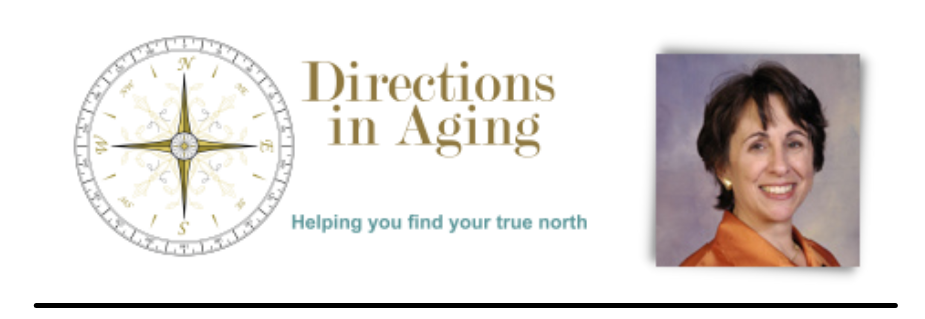 Like in the childhood game, “telephone,” the first call came from the neighbor across the street, who called the son in Pennsylvania who, in turn, called his sister in Maine, who, in turn, called me, the eldercare consultant in New Rochelle, New York. The town their mother, and I, called home.
Like in the childhood game, “telephone,” the first call came from the neighbor across the street, who called the son in Pennsylvania who, in turn, called his sister in Maine, who, in turn, called me, the eldercare consultant in New Rochelle, New York. The town their mother, and I, called home.
It seems the neighbor across the street observed their ninety-two-year-old mother taking her garbage to the curb. How, she inquired of the son, could he and his sister be so neglectful? While it wasn’t her words exactly, it was more the tone of her voice, that spurred this action. I imagine the neighbor was trying to be helpful. Given the adult children’s geographic distance, perhaps she thought they were not aware of what was taking place during these thrice-weekly jaunts to the curb. The truth be known, the son and daughter had been trying, unsuccessfully, for years to persuade their mother to just give a companion a try.
Despite hints of early dementia, the mother was readily able to reiterate to her children all the reasons for not wanting anyone coming to her house. To start, she was not having difficulty managing on her own. Regarding her shopping needs, what she was not able to pick up in the supermarket, there was a “COVID Volunteer” from her local synagogue she could count on. A companion would interfere with her privacy. Hinging on that, she had her sentimental belongings throughout the house and was certain they would disappear within a week of the companion’s arrival. And so, it was with this background that a daughter, undaunted by her mother’s past rebuttals, called this eldercare consultant, confident that what she and her brother were unable to do, I could accomplish.
With the expectations of the adult children and the neighbor on my shoulders, I met with the mother. She was welcoming and showed me around her home. I was slightly suspicious. Tours usually come after a client gets to know me. Perhaps the unsolicited tour was to make a point about her capabilities or maybe she was just being hospitable. With the sightseeing out of the way, we got down to the reason for my visit. Mom was well-rehearsed. She conveyed to me all the same reasons she had shared with her children.
This type of resistance is not unusual. As Aging Life Care Managers® we come across this kind of struggle frequently. The mother recognized that accepting help brings with it relinquishing privacy and adjusting to a new routine. She saw it as a sign of weakness to acquiesce. The daughter declared sheer frustration. Her mother failed to recognize that a little bit of help could go a long way to ensuring her continued safety and longevity in her home.
While empathizing with each of the mother’s reasons for refusing help, we Aging Life Care Professionals® have many strategies that we can choose from to try to resolve a particular issue. But sometimes, despite our best efforts, high expectations do not bring the hoped-for results. (Miracle worker does not appear in our job description or websites.) And so it was with this Aging Life Care Professional, me.
I used one of my tried and true strategies. “Give it a try, just for a few weeks” Not a budge. “How about if you think about it?” I asked. Affirmative. And with that, I said I would give her a call in a few weeks.
“I’m happy you didn’t forget about me,” she said two weeks later. And in the same breath, said she would be in touch with me when the time was right. Will the time ever be right I thought to myself? Or will the next call be from the daughter, all her mother’s excuses banished, replaced with an urgent appeal for help.
Wherever you are in your aging care management process, Aging Life Care Professionals are available and eager to help families of older adults. While it’s ideal for us to become a part of the solution before a crisis arises, we are full of resources to help in the event of an emergency too. Don’t delay and find one who can help you and your family.
 About the Author: Miriam Zucker, LMSW, ACSW, C-ASWCM, is the founder of Directions in Aging, based in New Rochelle, New York, Westchester County. As an Aging Life Care consultant with over two decades of experience, she has helped families find strategies to deal with the challenges of aging, while maintaining the stability of the family and the dignity of the senior.
About the Author: Miriam Zucker, LMSW, ACSW, C-ASWCM, is the founder of Directions in Aging, based in New Rochelle, New York, Westchester County. As an Aging Life Care consultant with over two decades of experience, she has helped families find strategies to deal with the challenges of aging, while maintaining the stability of the family and the dignity of the senior.
In conjunction with the Brookdale Center for Healthy Aging, of Hunter College, she helped to develop the Certificate Program in Geriatric Care Management where she served as a faculty instructor. She currently serves on the board of New Rochelle Cares, an aging-in-place program focused on helping seniors remain safely in their homes.